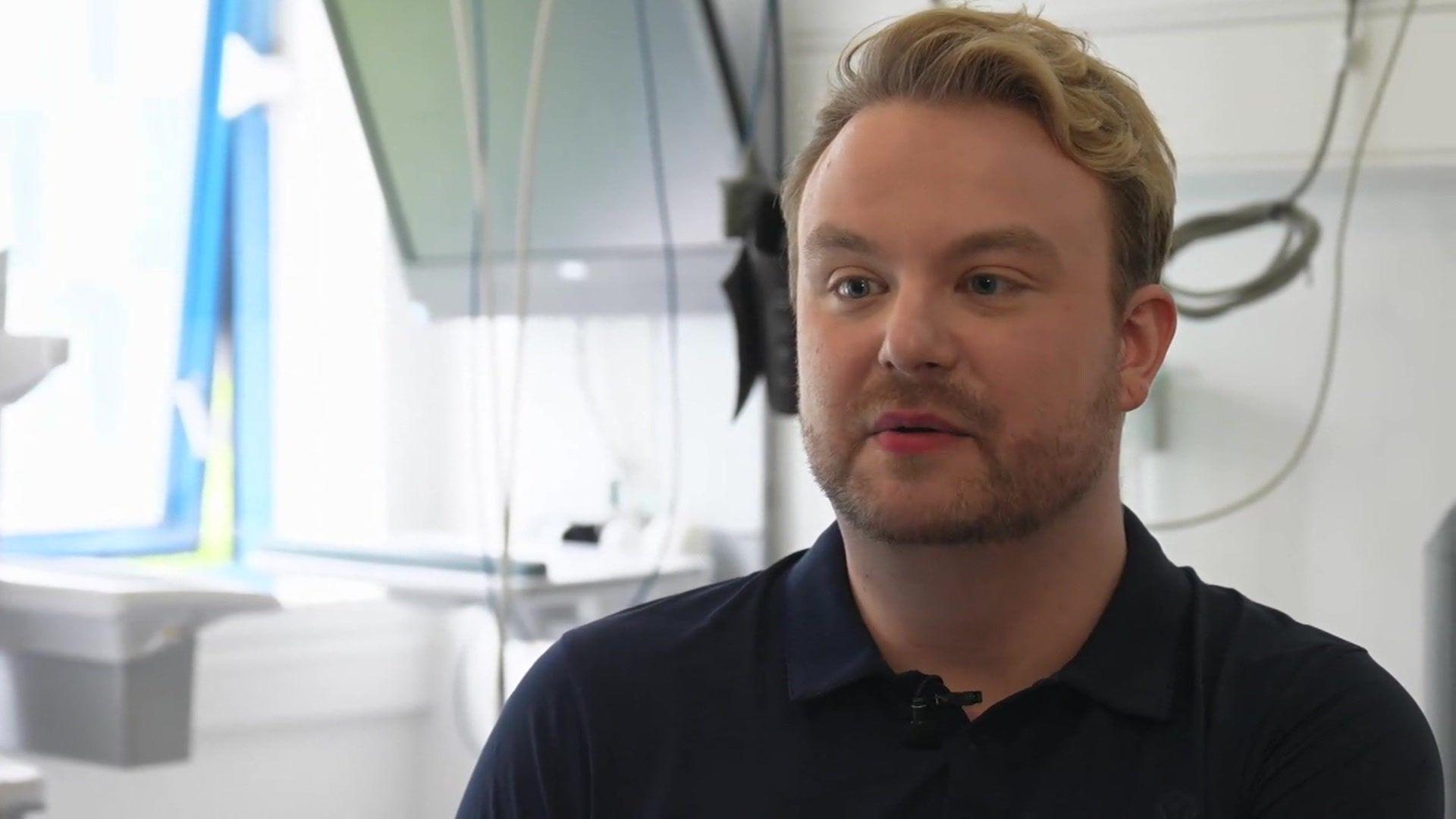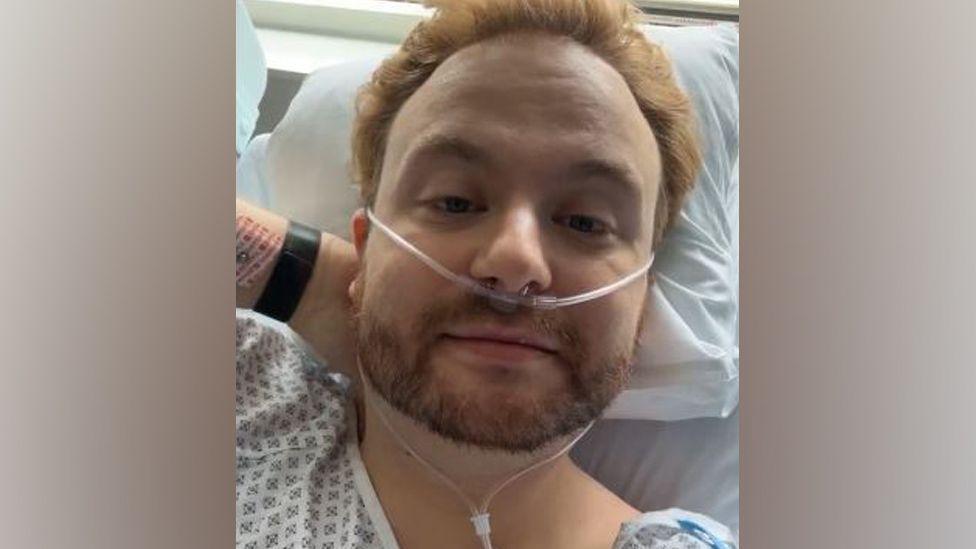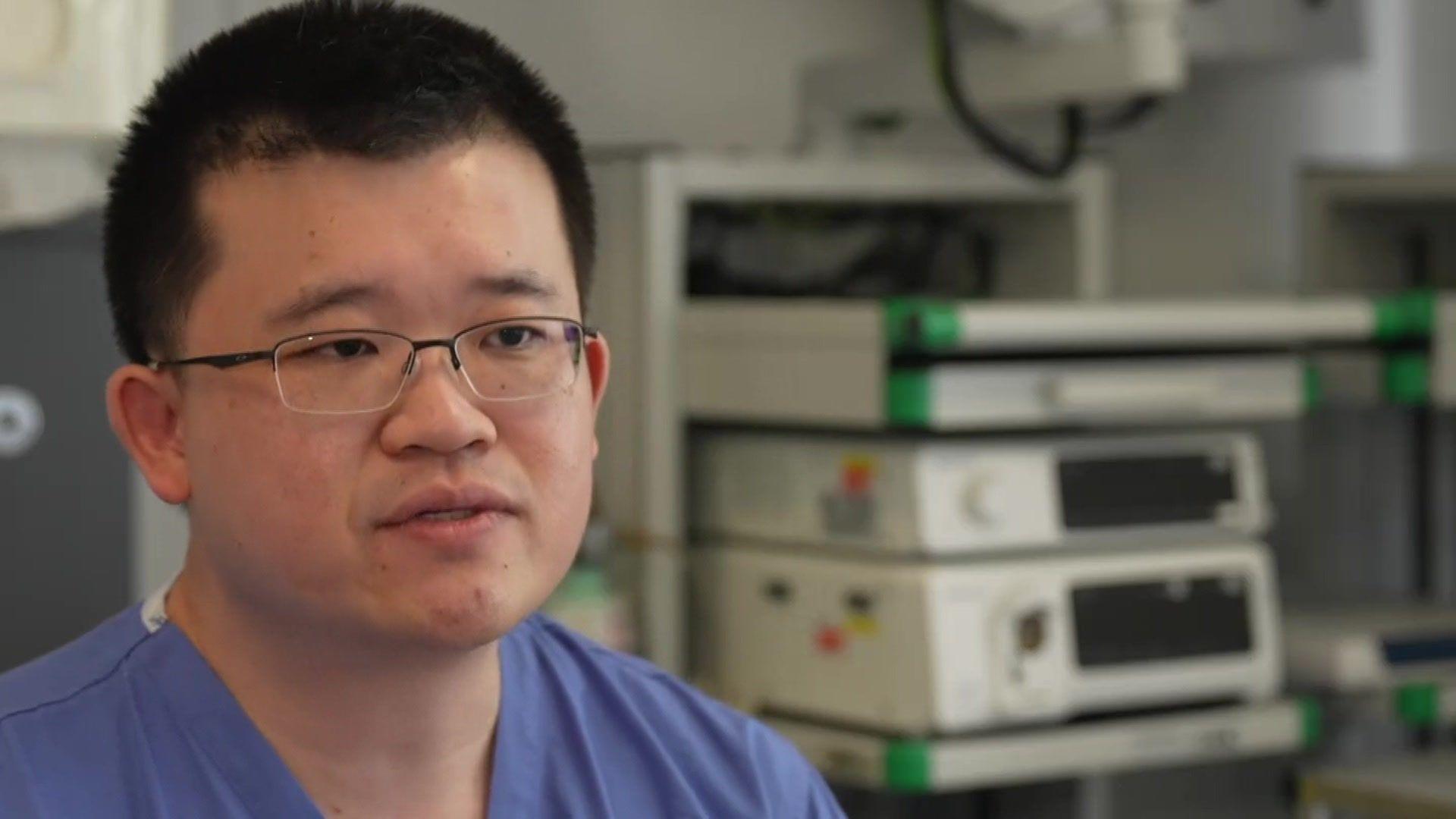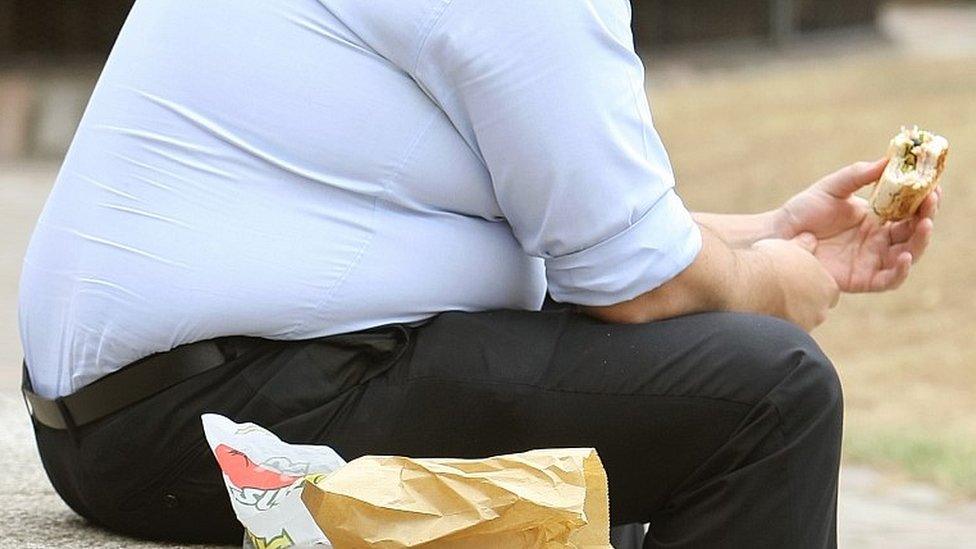'I feel more alive' - weight loss procedure patient

Yves Renuixen-Mencel said he felt "fantastic" after the procedure
- Published
A man who was given an "innovative" procedure to reduce the size of his stomach to treat obesity has said he feels "much more alive".
Yves Renuixen-Mencel was the first person to receive an Endoscopic Sleeve Gastroplasty (ESG) procedure at St Mary’s Hospital in central London.
NHS data suggests that 25% of Londoners are obese and 36% are overweight, external.
Dr Karl King Yong, consultant gastroenterologist at Imperial College Healthcare NHS Trust, said the procedure was "very attractive to a lot of patients" because it was "minimally invasive".
'From the heavens'
Mr Renuixen-Mencel's GP referred him to the hospital after he struggled with his weight and reached 23.9 stone (152kg) following a cancer diagnosis in 2019.
"I started a normal diet but it didn't bring the results as I wished," he said.
He said the procedure, which took place in May, "just came out from the heavens".
"I feel much more alive," he said.

Yves Renuixen-Mencel recieved the procedure in May
The ESG procedure is conducted under general anaesthetic, with parts of the stomach wall stitched and folded together to reduce its volume by 70% to 80%.
This is done via a thin, flexible tube with a camera and stitching device that is passed through the patient’s mouth into the stomach.
"I feel absolutely fantastic, I'm not sore or anything," Mr Renuixen-Mencel added.
"I eat way less because the size of my stomach is much, much smaller."
"Since this [procedure] is so innovative and not invasive, and you're basically out on the same day, it gives you huge opportunity just to have it done and go back to your life the next day."

Dr Karl King Yong said "a lot of interventions" are needed to tackle obesity
Dr King Yong said the day procedure was "minimally invasive" and "very safe".
"With a reduction in stomach volume, the patients will feel full after a meal much sooner, and therefore a reduction in the calorie intake and weight loss will be achieved," he said.
"It's very attractive to a lot of patients.
"But what I do want to emphasise is that obesity is such a big problem, we do need a lot of interventions, as many as we can have, which needs to be tailored according to individual needs."
ESG is currently available in 11 NHS hospitals nationwide, including St Mary’s Hospital.
Listen to the best of BBC Radio London on Sounds and follow BBC London on Facebook, external, X, external and Instagram, external. Send your story ideas to hello.bbclondon@bbc.co.uk, external
- Published13 May 2024

- Published1 March 2024

- Published3 March 2023
